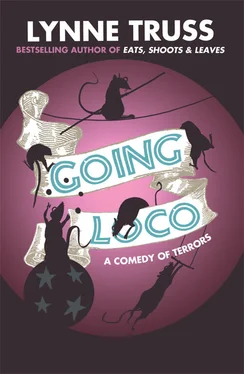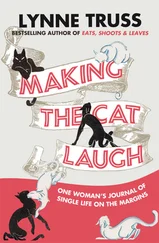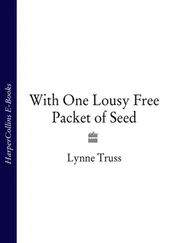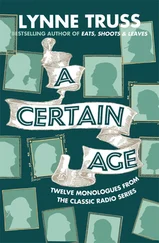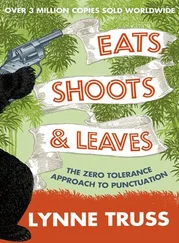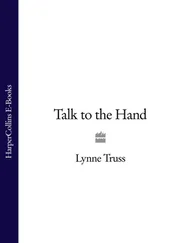Meanwhile, the manuscript of A Rosette for Verity had done its usual job of transmogrifying into a bowling ball in her shoulder-bag. She was brushing her hair with one hand and fumbling for bus-fare with the other, and Neville was helpfully practising trapeze. ‘Steady on, Neville,’ she muttered absently. And then the telephone rang in the hall.
‘Oh bugger,’ she said, as the phone trilled. Oh no. She flailed about, as if caught in quicksand. Here she was, late already, hair not dry, feeling sick with guilt about the poor crippled kiddies, and wearing a strange fashionable black slidy nylon coat she’d allowed her mother to buy her, which made her feel like an impostor.
‘Ring-ring,’ it said, as she passed.
‘Nope,’ she told it.
‘Ring-ring,’ it persisted. ‘Remember me?’
So she snatched up the receiver and answered the phone. Why? Because life’s like that. It’s a rule. The later you are, the less time you can give to it, the more vulnerable you are to far-fetched misgivings. What if it’s the publisher phoning to cancel? Or Stefan with his head caught in some railings?
All her life, Belinda’s idea of an emergency was someone with their head caught in some railings.
‘Hello?’
A high-pitched male voice with an Ulster accent. A friendly voice, but nobody she knew.
‘May I speak with Mrs Johnson, please?’
‘Johansson,’ she corrected him automatically, shooting a despairing glance at the hall clock. Why did cold-callers always waste time assuming you aren’t the person they’ve phoned? She gritted her teeth. Before catching the train she needed to buy some stamps, renew her road tax, phone a radio producer and touch up chapter three, because she’d just remembered the bay gelding of Verity’s chief rival Camilla had emerged from a three-day event as a chestnut mare. Perhaps he had got something caught in some railings. Dramatically (and distractingly) Neville swung back and forth in a spotlight, with no safety-net, accompanied by a drum-roll. Meanwhile her bag slid off her shoulder with a great whump, as if to say, ‘Well, if we’re not going out, I’ll stop here.’
‘Hello Mrs Johnson, my name is Graham, and I work for British Telecom. We recently sent you some details of new services. I wonder, is this a good time to talk?’
‘Hah!’
Belinda gave a hollow laugh and started to fill this annoying wasted time by hoisting her bag from under the hall table – the area Stefan cheerfully called the Land That Time Forgot About. Heaps of stuff made a big tangly nest under here, even though Belinda had frequently begged Mrs Holdsworth just to chuck it all out. She looked at it now, and it said, ‘Ooh, hello, remember us?’ rather excitedly, because it didn’t get the chance as often as the socks in the bathroom or the newspapers in the kitchen. Weekly free news-sheets and fluff in lumps mingled with Stefan’s favourite moose-hat, and some spare coat buttons. Three empty Jiffy-bags bled grey lunar dust over a novelty egg-timer, a bottle of Finnish vodka, a CD of the 1970s Malmö pop sensation the Hoola Bandoola Band, and an ice-hockey puck. And there among it was a single white envelope bearing the symbol of registered post. ‘Sod it,’ she said, as she stretched to reach it.
‘This is Graham from BT,’ the man reminded her. ‘Is this a good time to talk?’
She looked at the clock again: ten forty-three. This envelope clearly contained the cash-card she’d argued about with the bank. ‘You never sent it!’ she’d said. ‘But you signed for it!’ they replied. And here it was, saying, ‘Remember me?’ In her stomach, Neville started calling other rats for an acrobatic display – ‘Yip!’ ‘Hoopla!’ ‘Hi-yip!’ From the way their weight was shifting around, they had started to form the rodent equivalent of the human pyramid. She felt compelled to admire their ingenuity. It felt as though they’d acquired a springboard.
‘Look, I’ve got to go. This isn’t convenient.’
Graham made a sympathetic noise, but did not say goodbye. Instead, he asked, ‘Perhaps you could suggest a more convenient time in the next few days?’ It was a routine phone-sales question, but it unleashed something. Because suddenly Belinda lost control.
It was because he had asked her to think ahead, perhaps. That’s what did it. Normally she went through life as if driving in the country in the dark, just peering to the end of the headlights and keeping her nerve. But daylight revealed the total landscape. ‘A more convenient time in the next few days’? Her lip quivered. She considered the next few days, a vision of the M25 choked with cones and honking, with nee-naws – of appointments and deadlines and VAT return and, and – and started to sniff uncontrollably.
Damn this bloody rushing about. Sniff. Damn this fucking life. Sniff, sniff. She’d had a big argument about this letter, and why had it been unnoticed on the floor? Why? Because there was no time to Hoover this fluff or to clear these papers. Because there was no time to sack Mrs Holdsworth for her incompetence. No time to sew buttons on, or build a nice display cabinet for moose-hats, listen with full attention to Hoola Bandoola with a Swedish dictionary, or get to the bottom of the ice-hockey puck once and for all.
There was never any time, and it wasn’t fair. She glanced into the kitchen, where the table was heaped with unpaid bills, diaries. On each of the stairs behind her was a little pile of misplaced items tumbled together (foreign money with holes in, nail scissors, receipts). If items had human rights, the UNHCR would be down on Belinda like a ton of bricks. On the wall above the phone was a handsome blue-tinted postcard of the Sussex Downs with a serene quotation from Virginia Woolf: ‘I have three entire days alone – three pure and rounded pearls.’ Stefan had given it to her ‘as a yoke’. She saw it now, and in an access of Bloomsbury envy familiar to every other working female writer of the twentieth century, Belinda simply broke down and sobbed.
‘Mrs Johnson?’
Belinda made a wah-wah sound so loud it shocked her. She wiped her nose with the back of her hand, and then, at a loss, wiped the back of her hand on mother’s glossy coat – which was of a material, alas, designed specifically not to absorb mucal waste.
No one would understand what a bad moment this was. Belinda was not the sort of person who bursts into tears. In times of stress, she simply increased adrenaline production while Neville ran a three-ring circus. She didn’t cry. Stefan hated cry-babies. His imitation of his first wife’s cry-baby mode (‘Wah, wah! I’m so unhappy, Stefan!’) was quite enough to put anybody off.
‘Perhaps you would like some time?’ Graham persisted. ‘I can tell you don’t have time right now.’
‘No, I don’t have any time,’ whimpered Belinda.
‘Shall I give you a couple of days?’
Silence. A sniffle.
‘Mrs Johnson, would you like a couple of days?’
At which point, Belinda sank to the floor again, to sit flat on her bum and sob. ‘Would I like [sniff] a couple of—?’ A loud, helpless wah-wah was coming down the phone.
‘Have you got a tissue, Mrs Johnson?’ Graham asked, gently.
‘Jo-hansson!’ she sobbed.
‘I’ll give you a couple of days.’
Belinda struggled to her feet, dragging her bowling ball towards her.
‘Give me three pure and rounded pearls, Graham. What I want’ – she sniffed noisily – ‘is three pure and rounded pearls.’
You shouldn’t dislike Belinda. She had a great many redeeming features. She knew lots of jokes about animals going into bars, for example. But clearly she had a big problem negotiating the routine pitfalls of everyday existence.
Читать дальше
